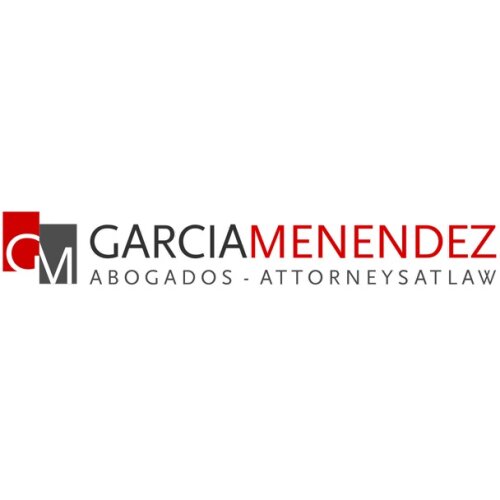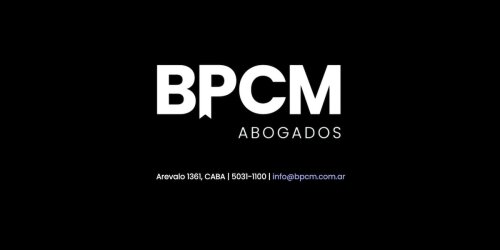Best Business Registration Lawyers in Buenos Aires
Share your needs with us, get contacted by law firms.
Free. Takes 2 min.
List of the best lawyers in Buenos Aires, Argentina
About Business Registration Law in Buenos Aires, Argentina
Business registration in Buenos Aires, Argentina is a pivotal legal step for entrepreneurs and companies wishing to operate within the city. This process is governed by local and national regulations that ensure businesses are legally recognized and operate within the framework established by the Argentine Commercial Code. Registering a business in Buenos Aires involves a series of steps including choosing a legal structure, registering the company name, obtaining necessary permits and licenses, and complying with tax obligations. The city's strategic location and vibrant economy make understanding and navigating the registration process crucial for business success.
Why You May Need a Lawyer
Though some entrepreneurs may manage business registration themselves, hiring a lawyer can provide significant benefits, especially in complex scenarios. A lawyer can assist in situations including choosing the appropriate legal structure (e.g., corporation, limited liability company), ensuring compliance with local and national laws, drafting necessary legal documents (such as articles of incorporation), and expediting the registration process through their expertise. Additionally, lawyers offer crucial support in resolving any legal disputes or challenges that arise during or after the registration process.
Local Laws Overview
The business registration process in Buenos Aires is influenced by both local ordinances and national laws. Key aspects include selecting the business form, which determines tax liabilities and regulatory obligations. Common business structures include a Sociedad Anónima (S.A.) or Sociedad de Responsabilidad Limitada (S.R.L.), each with unique legal and fiscal characteristics. The Inspección General de Justicia (IGJ) is the main regulatory body overseeing corporate registrations, requiring companies to submit detailed documents, such as company bylaws and shareholder agreements. Understanding regulatory compliance, especially regarding labor laws and tax registration with the Administración Federal de Ingresos Públicos (AFIP), is vital for newly registered businesses.
Frequently Asked Questions
What types of legal structures are available for businesses in Buenos Aires?
In Buenos Aires, common legal structures include the Sociedad Anónima (S.A.), Sociedad de Responsabilidad Limitada (S.R.L.), and the simpler unipersonal entity structures. Each structure varies in terms of legal requirements and tax implications.
How long does the business registration process typically take?
The process can vary from a few weeks to several months, depending on the complexity of the business structure chosen and the completeness of the submitted documentation.
Are there specific naming requirements for businesses in Buenos Aires?
Yes, the chosen business name must be unique and not misleading in relation to the business purposes. It must also adhere to guidelines set forth by the Inspección General de Justicia (IGJ).
Is a physical office required to register a business in Buenos Aires?
Yes, businesses typically need a legal or commercial address in Buenos Aires, which can serve as their registered office for correspondence and legal statements.
What documentation is required for business registration?
Necessary documents include bylaws or articles of incorporation, shareholder data, proof of business address, and identification documents for founders or key stakeholders.
What are the basic tax obligations for a registered business?
Businesses must register with the Administración Federal de Ingresos Públicos (AFIP) and comply with income tax, VAT, and employer obligations if they have employees.
Can foreigners register a business in Buenos Aires?
Yes, foreigners can own and operate businesses in Buenos Aires, though they may need specific types of visas or permits depending on their level of involvement.
Do I need a local partner to register a business?
A local partner is not legally required but can be advantageous in navigating local regulations and business customs.
How can I protect my business idea or brand legally?
To protect intellectual property such as business ideas or brand names, registration with the Instituto Nacional de la Propiedad Industrial (INPI) for trademarks and patents is recommended.
What are the consequences of not registering a business?
Operating an unregistered business can lead to legal penalties, fines, and challenges in enforcing contracts or attracting investments.
Additional Resources
For further assistance or information, consider reaching out to the Inspección General de Justicia (IGJ) for corporate and commercial registration guidance, the Administración Federal de Ingresos Públicos (AFIP) for tax inquiries, or business associations such as the Argentine Chamber of Commerce. Additionally, consulting with local law firms specializing in business law can provide personalized advice and support.
Next Steps
If you require legal assistance with business registration, consider contacting a lawyer specializing in corporate law in Buenos Aires. Start by compiling all necessary documentation for the registration process. Make appointments with the IGJ or other relevant regulatory bodies to gather information on specific procedures. Consider attending workshops or seminars on business registration to better understand the obligations and opportunities available to new businesses in Buenos Aires. Finally, engaging a lawyer can streamline this process, ensuring compliance with all legal requirements and enhancing the business setup experience.
Lawzana helps you find the best lawyers and law firms in Buenos Aires through a curated and pre-screened list of qualified legal professionals. Our platform offers rankings and detailed profiles of attorneys and law firms, allowing you to compare based on practice areas, including Business Registration, experience, and client feedback.
Each profile includes a description of the firm's areas of practice, client reviews, team members and partners, year of establishment, spoken languages, office locations, contact information, social media presence, and any published articles or resources. Most firms on our platform speak English and are experienced in both local and international legal matters.
Get a quote from top-rated law firms in Buenos Aires, Argentina — quickly, securely, and without unnecessary hassle.
Disclaimer:
The information provided on this page is for general informational purposes only and does not constitute legal advice. While we strive to ensure the accuracy and relevance of the content, legal information may change over time, and interpretations of the law can vary. You should always consult with a qualified legal professional for advice specific to your situation.
We disclaim all liability for actions taken or not taken based on the content of this page. If you believe any information is incorrect or outdated, please contact us, and we will review and update it where appropriate.














